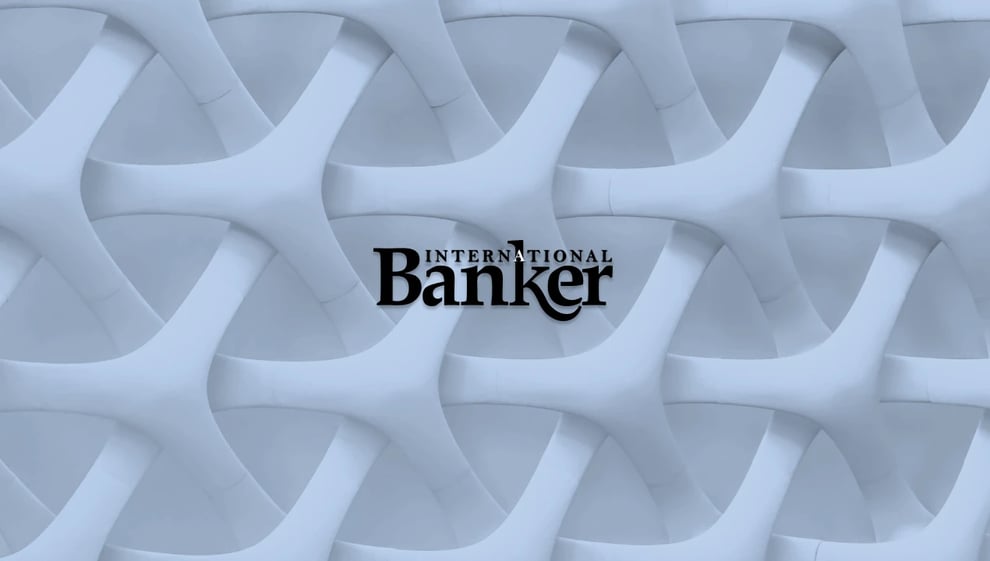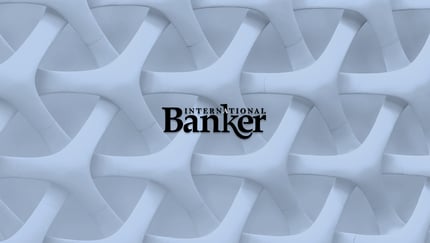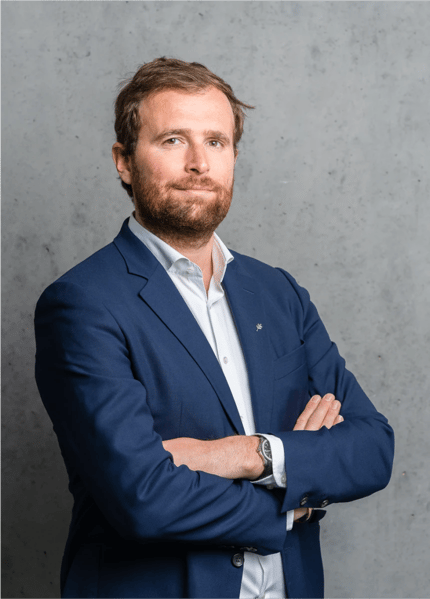International Banker interviews Selman Bicaco Urrutia about our local private bank

-

International Banker
-

Selman Bicaco Urrutia Head of Private Banking

International Banker interview Piguet Galland
Selman Bicaco Urrutia, Head of Private Banking and member of the Executive Committee of Piguet Galland & Cie SA, was a guest of the trade magazine International Banker.
Watch the video interview:
Which aspect(s) of Piguet Galland’s overall service do you find gives your clients the most satisfaction and/or peace of mind?
Our comprehensive wealth management approach enables us to consider every aspect of the wealth of our clients, including financial investments and real-estate assets. Our full service offering is based on three pillars, investments, wealth advisory solutions (including pension planning), and financing; in this way we we take into account each area of our clients’ lives and advise them as comprehensively as possible for the realisation of their life projects Through our holistic approach, we aim to provide them with absolute serenity when having to make decisions relating to their wealth.
You mention as a key objective in one of your presentations that “Ce qui vous empêche de dormir, ce n’est pas un arbitrage entre une position et une autre dans votre portefeuille.” What do you consider to be the single most important aspect of Piguet Galland’s service that ultimately helps its clients sleep well at night?
It is precisely our comprehensive wealth management approach that enables our clients, if they wish, to be relieved of constant worries about positions in their portfolios; our teams are there to take care of this. Our aim is that, with our support, our clients may project themselves and their loved ones into the future, through our comprehensive wealth planning solutions. The sentence you refer to demonstrates that we fully understand that, inevitably, life already involves multiple concerns, particularly regarding our health and that of our loved ones. As a private bank, our mission, and especially that of our advisors, is to relieve our clients of their financial concerns, so that they can focus on other aspects of their lives.
If I’m not mistaken, Piguet Galland was the first bank in the sector to obtain Fair on Pay certification, guaranteeing equal pay for men and women. Are you satisfied with the overall level of gender equality that now prevails within the bank? And what other aspects of the bank’s Diversity And Inclusion policy require the most immediate attention?
This year, we published our first CSR (Corporate Social Responsibility) report, however, we have been focused on the well-being of our employees for a long time; this approach did indeed enable us to become the first private bank in Switzerland to obtain the Fair-On-Pay label. Since them we have even earned the Fair-On-Pay + rating, the ‘+’ referring to the fact that, within our institution, the gender pay gap is less than 1%. Of course, it is our desire to contribute meaning to the work of our employees; the basis for this is to ensure fair treatment and favour diversity across employee profiles. With this in mind, we have established a caring environment that promotes dialogue, respect and trust, as well as the recognition of each employee’s contributions. Finally, we promote the employability and autonomy of our employees, by encouraging ongoing training and the further development of skills.
What do you see as being the main changes likely to take place within private banking in Switzerland over the next year or so? And what do you anticipate will be the main broad private banking themes to take hold between now and 2030?
We believe that ESG standards will be increasingly developed in years to come. We also believe that a hybrid model will evolve, with digitalisation further reinforcing the importance of the human factor. As far as artificial intelligence (AI) is concerned, we observe the weaknesses of many companies with regard to this transformation; we note that some companies are insufficiently prepared, they don’t have a clear strategy, or in some cases their operational preparation is inadequate. As a result, it seems that the challenges for private banking, in relation to artificial intelligence, are to manage a reasonable and gradual evolution so that, in the future, private banking services integrate artificial intelligence, by combining digital and human input.
Given that Piguet Galland prides itself on being “a bank on a human scale”, how do you ensure that you are consistently achieving the right balance between digital and human when serving clients? And do you believe that human support will always remain a significant component of the bank’s service, even as digitalisation continues to expand over the coming years?
We place considerable emphasis on proximity with our clients, whether face-to-face or digital. In this sense, we aim to establish something more than a simple relationship between a banker and their client. For us, this is first and foremost a question of trust and the ability to listen. Our ambition is to achieve a comprehensive understanding of our clients’ circumstances, in terms both of their personal and their overall financial situation, so that we may support them in achieving their goals. To this end, we need to improve the quality and intensity of our exchanges, making sure that our clients can easily contact our advisors, obtain quality information and an excellent level of responsiveness in the management of their portfolios. Ultimately, our advisors need to be able to rely on the support of technology to achieve these goals.
As Director of Private Clients and member of the Executive Committee of Piguet Galland, what would you consider to be the most important attributes a private bank must possess in order to cultivate and maintain long-term client relationships? And do you have any specific philosophies that you employ when it comes to being a banking leader?
We need to ensure that our clients can obtain timely and direct answers to all their questions. At the same time, bankers must deliver the highest possible quality service, based on an agile service offering able to adapt rapidly to any requirement. To make this possible, the needs of clients must be addressed in an accurate manner (client centricity), avoiding at all costs an approach in which the bank wants to impose its own ideas. Furthermore, it is also necessary to carefully monitor the market to ensure that, at any time, our service offering may evolve in the right direction. Last but not least, communication is central and information must be passed on in a clear manner internally in order to meet the clients’ goals in an optimal way.
What is the most successful way in which the bank has been able to attract new clients and grow its client base in recent years? And why do you believe this method has been so successful?
We are one of the few banks which prioritises local clients. We are also one of the few banks to focus, amongst other things, on helping our clients to achieve their life projects through a holistic approach to wealth advisory services . Indeed, our service offering is both comprehensive and adapted, since it includes asset management and mortgages, as well as wealth and pension advice.
In the Autumn issue of International Banker, you mentioned that one of your main responsibilities is “making sure that internal staff feel good and are happy to come to work thanks to a motivating environment.” How do you perform this task in practice (perhaps with one or two examples if appropriate)? And do you believe staff are currently motivated to deliver their best for the bank?
Of course, it would be very difficult to strive to ensure serenity for our clients if this was something that the Bank’s teams did not experience themselves. In this sense, we believe that contributing to the happiness of our clients and employees requires a healthy, fair, human, transparent, responsible, and welcoming corporate culture, in which each employee has the opportunity to find their place and develop their skills. Over many years, we have increased our efforts to create the most fulfilling working environment possible based in particular on the fair treatment of employees (Fair-On-Pay), a training policy aimed at strengthening employability, greater flexibility in working conditions (part-time, working from home, the possibility to work from the one of our six branch offices which is most convenient for the employee’s residence) and a stronger involvement of employees in the choices of the organisation (a review of governance that took place this year). Moreover, this year we published our first CSR report.
Some might argue that the economic outlook throughout much of Europe is likely to remain precarious this year, despite some signs of a recovery materialising. Would you say the bank is well-positioned to absorb any further deterioration in economic conditions over the coming months? And are you anticipating any major strategic shift being employed by the bank should, say, a recession transpire?
2023 began very well for us and we expect positive results at the end of the year, despite the increased volatility experienced in the markets in recent years. Our institution enjoys excellent capitalisation thanks to the fact that the BCV Group, one of the four safest banks in the world, holds almost 100% of our equity. We are very optimistic in this early stage of 2023, thanks especially to the excellent advice provided across our three areas of expertise to ensure that our clients may benefit from this situation. We haven’t needed to adapt our strategy following global geopolitical events and we are constantly supporting our clients regardless of the economic cycle. Our goal is to constantly maintain clear and direct objectives for our clients, so that they always feel comfortable in these complex circumstances.
How has the persistence of high inflation throughout much of 2022, and indeed to this day, influenced the decisions made by the bank’s various client segments? And has it significantly influenced the strategy and approach taken by the bank itself?
At Piguet Galland, in addition to the loans granted, we have increased our clients’ bond holdings in order to generate interest income in their portfolios to finance in part their loans. I would like to point out that our strategy has not been modified by the inflationary environment; however, we have strengthened our advice in the fields of real estate, pension planning and investment, adapting to the new environment.
What is your broad outlook for wealth management over the next year or so? And how do you see the local private banking market changing during this time?
We have started, and will continue, with a determined return to bonds in portfolio allocations, as this approach offers a good return on investment. On the other hand, equities will certainly be of interest in the future too. As a general rule, the watchword is diversification across the various major asset classes, including real estate, private equity and more traditional asset classes.
What aspect of the bank’s ongoing digital transformation are you most looking forward to seeing implemented in the coming year? And why will this particular digital solution be such a game changer?
We are actively working on tools to better understand the needs of our clients (Data) and improve their experience with our organisation. More specifically, we are currently working on a new approach to e-banking, so that our clients may access information which is even clearer and more direct. We would like our clients to be able to check their data without a need for our interaction, particularly in situations where there is no added value that we can provide. On the other hand, we will continue to contribute our expertise in aspects where our added value is high, whether in real estate, pension planning or investments. In this sense, in the current year, we do not feel any immediate urgency to change our digital systems. Clearly, this is a change that will take place over the medium term, however, we are of course constantly seeking the best solutions for our clients.
What is the bank’s most important objective over the next year or so? And how do intend to achieve it?
Our main objective is to be able to offer an optimised service to our clients, or, to put it in another way, to ensure their satisfaction, 100%. In order to achieve this, we focus on very high-quality employees and on the best possible service offering. Clearly, our Bank is resolutely forward-looking. Of course, we consider both the structural and non-structural obstacles encountered along the way. We will continue to do the same, with professionalism and passion.
Authors
-

International Banker
linkedIn -

Holder of an MBA from IESE Business School, Selman Bicaco Urrutia began his career at Credit Suisse in Geneva before moving to Merrill Lynch in London. After seven years at Banque CIC, where he served as Head of the Geneva branch, he joined Piguet Galland in 2021 as Head of Private Clients and member of the Executive Committee. In this role, he leads the Bank’s strategic and commercial development.



.png?width=488&height=440&name=Communiqu%C3%A9%20(3).png)